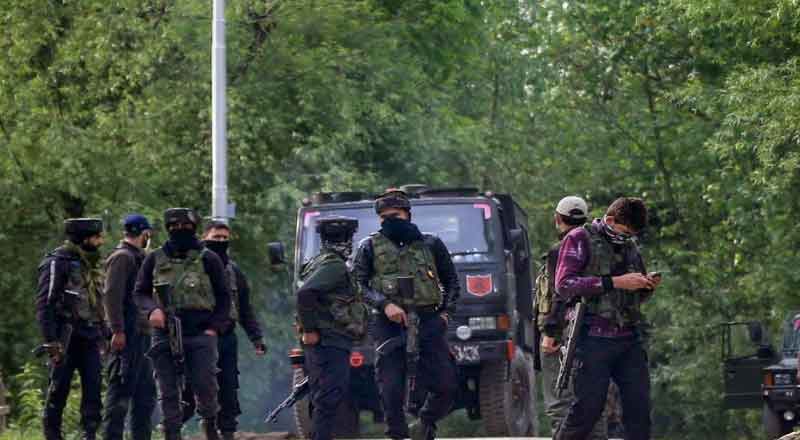The recent terror attack in Jammu and Kashmir’s Reasi district, claiming the lives of nine pilgrims and injuring several others, has sent shockwaves across India. The incident, attributed to The Resistance Front (TRF), a faction of the Pakistan-based Lashkar-e-Taiba (LeT) terrorist group, has not only inflicted tragedy but also raised significant security concerns in the region. Let’s delve into the unfolding events and their implications step by step.
The Tragic Incident Unfolds
On a fateful day, two masked terrorists ambushed a bus ferrying Hindu pilgrim from the Shiv Khori temple to Katra town, causing the vehicle to careen off the road and plunge into a gorge near Teryath village. The brazen attack resulted in the loss of nine lives, including pilgrims from Rajasthan and Uttar Pradesh, as well as the local bus driver and conductor. Amidst the chaos, survivors recounted harrowing tales of sustained gunfire targeting the bus, painting a grim picture of the ordeal.
The Aftermath: Political and Official Response
In the aftermath of the attack, Prime Minister Narendra Modi, amidst his oath-taking ceremony in Delhi, took note of the situation, promising swift action and adequate medical assistance to the injured. Home Minister Amit Shah condemned the heinous act, vowing to bring the perpetrators to justice. Rahul Gandhi, echoing widespread concerns, highlighted the alarming security situation in Jammu and Kashmir.
Security Ramifications and Past Incidents
This latest attack, reminiscent of past atrocities against Hindu pilgrims, underscores the escalating security threat in the region. Previous incidents, including a similar attack in May 2022 and the infamous 2017 Amarnath Yatra attack, reveal a pattern of targeted violence aimed at disrupting communal harmony and peace. The usage of sophisticated weaponry like M4 carbines by terrorists underscores the evolving nature of the threat.
Expanding Militancy: A Growing Concern
The attack signals a worrying trend of militant activity extending beyond traditional hotspots like Rajouri and Poonch into relatively peaceful regions like Reasi. Reports suggest the presence of multiple terror groups operating in the area, posing a formidable challenge to security forces. The rugged terrain and dense forests of Jammu and Kashmir provide a conducive environment for militant activities, necessitating heightened vigilance and proactive measures.
Looking Ahead: Challenges and Resilience
As security forces intensify their efforts to apprehend the perpetrators and thwart future attacks, the Reasi incident serves as a stark reminder of the persistent threat posed by terrorism in the region. While the tragedy has instilled fear and uncertainty, it also underscores the resilience and determination of authorities and citizens alike to combat extremism and safeguard peace in Jammu and Kashmir.
Addressing Root Causes and Building Resilience
In addition to immediate security measures, addressing the root causes of militancy, such as socio-economic disparities, political instability, and external influences, is crucial for long-term peace and stability in Jammu and Kashmir. Strengthening community engagement, promoting interfaith dialogue, and empowering local governance structures can help build resilience against radicalization and violent extremism.
International Cooperation and Regional Security
Given the transnational nature of terrorism, regional cooperation and intelligence-sharing are essential for effectively countering the threat posed by terrorist groups operating in Jammu and Kashmir. India’s efforts to engage with neighboring countries, particularly Pakistan, to address cross-border terrorism and promote peace talks are vital for regional stability and security.
Empowering Local Communities and Civil Society
Empowering local communities and civil society organizations to play an active role in countering violent extremism is key to preventing radicalization and fostering social cohesion. Investing in education, youth programs, and economic opportunities can provide viable alternatives to vulnerable populations susceptible to extremist ideologies.
Conclusion
While the Reasi terror attack has highlighted the challenges and vulnerabilities in Jammu and Kashmir’s security landscape, it also underscores the resilience and determination of stakeholders to confront and overcome the menace of terrorism. By addressing root causes, enhancing security measures, and fostering regional cooperation, India can effectively combat terrorism and ensure lasting peace and stability in the region.
(With inputs from agencies)





